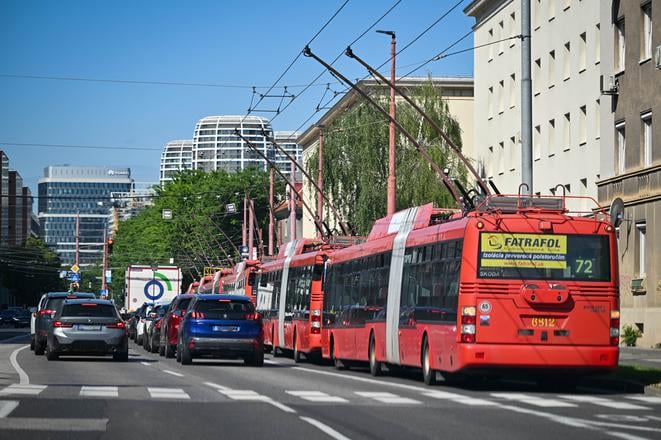Public transport in Bratislava is set to become more expensive from March.
Prices will be increased to reflect higher VAT, transaction taxes, and inflation. This fare hike is therefore a result of the government’s fiscal consolidation package, the city said. Municipalities will also be directly affected by changes to the redistribution of individual income taxes, receiving less funding from the state.
A basic 30-minute ticket will increase by 10 cents, costing €1.20, while the price of an annual travel pass will rise by 10 percent, reaching €263. The remaining tickets will see an average increase of 12.6 percent. The only exception to this are student travel passes, which will remain at their current price and will not see any increase.
The fare increase comes as part of next year’s budget, which the Bratislava City Council approved last week. Ctibor Košťál, the Bratislava City Hall’s chief, explained that the higher fares are necessary to offset losses faced by the municipal transport company (DPB), one of the city’s costliest services.
“Maintaining services at their current level is our priority,” said Mayor Matúš Vallo, as quoted by the Sme daily.
The €626.8 million budget for 2025 is described as balanced and conservative, with no plans to raise other fees or taxes. Spending priorities include public safety, with a 6 percent boost to municipal police funding to improve training, crime prevention, and CCTV systems. Employee wages across city departments are also set to rise.
Growing debt
Bratislava ends 2024 with an estimated debt of 46 percent of its budget, which is forecast to increase slightly to 47.4 percent next year. Critics, including Karlova Ves Mayor Dana Čahojová, argue the city is living beyond its means.
“I can’t trust that 47.4 percent figure,” Čahojová said, adding that Bratislava’s debt-servicing costs remain too high.
Independent watchdogs also expressed concerns over the city’s borrowing habits in the past. Comparisons with Brno, a smaller Czech city with nearly €800 million in revenue, have fuelled further scrutiny of Bratislava’s financial strategy.
While the municipal auditor praised the balanced budget, they warned of risks posed by unpredictable legislation, which could erode revenues or inflate costs. Nonetheless, the city has allocated €111 million to public transport in hopes of keeping services running smoothly despite the financial strain.


 Trolley-buses in Bratislava on May 9, 2024. (source: Pavol Zachar)
Trolley-buses in Bratislava on May 9, 2024. (source: Pavol Zachar)